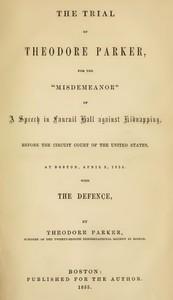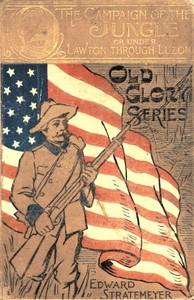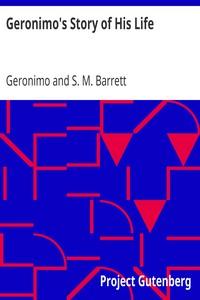Read this ebook for free! No credit card needed, absolutely nothing to pay.
Words: 104104 in 21 pages
This is an ebook sharing website. You can read the uploaded ebooks for free here. No credit cards needed, nothing to pay. If you want to own a digital copy of the ebook, or want to read offline with your favorite ebook-reader, then you can choose to buy and download the ebook.


: The Trial of Theodore Parker For the Misdemeanor of a Speech in Faneuil Hall against Kidnapping before the Circuit Court of the United States at Boston April 3 1855 with the Defence by Parker Theodore - United States Fugitive slave law (1850); Antislavery
John Hampden was taxed twenty shillings--he refused to pay, though he knew well the fate of Richard Chambers a few years before. The case came to trial in 1637, in the Court of Exchequer before Lord Chancellor Coventry, a base creature, mentioned before. It was "the great case of Ship-money." The ablest lawyers in England showed that the tax was contrary to Magna Charta, to the fundamental laws of the realm, to the Petition of Right and to the practice of the kingdom. Hampden was defeated. Ten out of the twelve Judges sided with the King. Croke as the eleventh had made up his mind to do the same, but his noble wife implored him not to sacrifice his conscience for fear of danger, and the Woman, as it so often happens, saved the man. Attorney-General Banks thus set forth the opinion of the Government, and the consequent "decision" of the Judges. He rested the right of levying Ship-money on the "intrinsic, absolute authority of the King." There was no Higher Law in Old England in 1634! Banks said, "this power is innate in the person of an absolute King, and in the persons of the Kings of England. All-magistracy it is of nature; and obedience and subjection it is of nature. This power is not anyways derived from the people, but reserved unto the King when positive laws first began. For the King of England, he is an absolute monarch; nothing can be given to an absolute prince but what is inherent in his person. He can do no wrong. He is the sole judge and we ought not to question him, whom the law trusts we ought not to distrust." "The Acts of Parliament contain no express words to take away so high a prerogative; and the King's prerogative, even in lesser matters, is always saved, where express words do not restrain it."
It required six months of judicial labor to bring forth this result, which was of "infinite disservice to the crown." Thereupon Mr. Hallam says:--
"Those who had trusted to the faith of the judges were undeceived by the honest repentance of some, and looked with indignation on so prostituted a crew. That respect for courts of justice which the happy structure of our Judicial administration has in general kept inviolate, was exchanged for distrust, contempt, and a desire of vengeance. They heard the speeches of some of the Judges with more displeasure than even their final decision. Ship-money was held lawful by Finch and several other Judges, not on the authority of precedents which must in their nature have some bounds, but on principles subversive of every property or privilege in the subject. Those paramount rights of monarchy, to which they appealed to-day in justification of Ship-money, might to-morrow serve to supersede other laws, and maintain more exertions of despotic power. It was manifest by the whole strain of the court lawyers that no limitations on the King's authority could exist but by the King's sufferance. This alarming tenet, long bruited among the churchmen and courtiers, now resounded in the halls of justice."
Thus by the purchased vote of a corrupt Judiciary all the laws of Parliament, all the customs of the Anglo-Saxon tribe, Magna Charta itself with its noble attendant charters, were at once swept away, and all the property of the kingdom put into the hands of the enemy of the People. These four decisions would make the King of England as absolute as the Sultan of Turkey, or the Russian Czar. If the opinion of the Judges in the case of Impositions and Ship-money were accepted in law,--then all the Property of the People was the King's; if the courts were correct in their judgments giving the King the power by his mere will to imprison any subject, during pleasure, and also to do the same even with members of Parliament and punish them for debates in the House of Commons, then all liberty was at an end, and the King's Prerogative extended over all acts of Parliament, all property, all persons.
The nation was enraged. Mainwaring was brought before Parliament, punished with fine and imprisonment and temporary suspension from office and perpetual disability for ecclesiastical preferment. But the King who ordered the publication of the sermons, and who doubtless had induced him to preach them, immediately made him Rector of Stamford Parish, soon appointed him Dean of Worcester, and finally in 1645 made him Bishop of St. David's. A few years ago such clerical apostasy would seem astonishing to an American. But now, Gentlemen of the Jury, so rapid has been the downfall of public virtue, that men filling the pulpits once graced and dignified by noblest puritanic piety, now publicly declare there is no law of God above the fugitive slave bill. Nay, a distinguished American minister boldly proclaimed his readiness to send his own Mother into eternal bondage! Thus modern history explains the old; and the cheap bait of a republican bribe can seduce American dissenters, as the wealthy lure of royal gifts once drew British churchmen into the same pit of infamy. Alas, hypocrisy is of no sect or nation.
Gentlemen, the Government of England once decreed "that every clergyman, four times in the year, should instruct his parishioners in the Divine right of Kings, and the damnable sin of resistance." No Higher Law! America has ministers who need no act of Parliament to teach them to do the same; they run before they are sent.
London still remained the strong-hold of commerce, of the Protestant Religion, and of liberal Ideas in domestic Government; for though subsequently corrupted by lust of gain, which sought a monopoly, the great commercial estates and families of England were not then on the side of Despotism, as now strangely happens in America.
When the king sought to ruin Shaftesbury,--a corrupt man doubtless, but then on the side of liberty, the enemy of encroaching despotism,--a London Grand-Jury refused to find a bill, and was warmly applauded by the city. Their verdict of IGNORAMUS was a "personal liberty bill" for that time, and therefore was the king's wrath exceeding hot, for "Ignoramus was mounted in Cathedra," and there was a stop put to such wickedness. So London must be brought down. She refused to surrender her Charter. In 1682 the king proceeded to wrest it from her by the purchased hand of the courts of law. But even they were not quite adequate to the work. So Chief Justice Pemberton was displaced, and Saunders,--a man as offensive in his personal habit of body as he was corrupt in conduct and character--was put in his office. Dolbin, too just for the crime demanded of him, was turned out, and Withins made to succeed him. For "so great a weight was there at stake as could not be trusted to men of doubtful principles," says North. Saunders, who had plotted this whole matter, was struck with an apoplexy when sentence was to be given, but sent his opinion in writing. Thus on the judgment given by only two judges, who assigned no reasons for their decision, it was declared that the Charter of London was forfeit, and the liberties and franchises of the city should "be seized into the king's hands."
Thus fell the charter of London! Gentlemen of the Jury, the same sword was soon to strike at the neck of New England; the charter of Massachusetts could not be safe in such a time.
One State-secret lay at the bottom of the Stuarts' plans,--to appoint base men for judges, and if by accident a just man came upon the bench, to keep him in obscurity or to hustle him from his post. What names they offer us--Kelyng, Finch, Saunders, Wright, Jeffreys, Scroggs! infamous creatures, but admirable instruments to destroy generous men withal and devise means for the annihilation of the liberties of the people. Historians commonly dwell on the fields of battle, recording the victories of humanity, whereof the pike and gun were instruments; but pass idly over the more important warfare which goes on in the court house, only a few looking on, where lawyers are the champions of mankind, and the battle turns on a sentence; nay, on a word which determines the welfare of a nation for ages to come. On such little hinges of law do the great gates hang, and open or shut to let in the happiness or the ruin of millions of men! Naseby and Worcester are important places truly, venerable for great deeds. Cromwell and Blake are names not likely to perish while men can appreciate the heroism which sheds blood. But Westminster Hall has rung with more important thunder than cannon ever spoke, and Pym and Selden, St. John and Hampden--nay, Penn, Bunyan, Fox, Lilburne--have done great service for mankind. Gentlemen of the Jury, it is a matter of great magnitude which hinges on the small question of fact and law to-day. You are to open or shut for Humanity. If the People make themselves sheep there will be wolves enough to eat you up.
It is difficult to calculate the amount of evil wrought by such corrupt judges as I have spoken of; they poison the fountains of society. I need not speak of monsters like Scroggs and Jeffreys, whose names rot in perpetual infamy, but creatures less ignoble, like Wright, Saunders, Finch, Kelyng, Thurlow, Loughborough, and their coadjutors, must be regarded as far more dangerous than thieves, murderers, or pirates. A cruel, insolent Judge selecting the worst customs, the most oppressive statutes, and decisions which outrage human nature--what an amount of evil he can inflict on groaning humanity!
Gentlemen of the Jury, in this long sad history of judicial tyranny in England there is one thing particularly plain: such judges hate freedom of speech, they would restrict the Press, the Tongue, yes, the Thought of mankind. Especially do they hate any man who examines the actions of the government and its servile courts, and their violation of justice and the laws. They wish to take exemplary and malignant vengeance on all such. Let me freshen your knowledge of some examples.
Free books android app tbrJar TBR JAR Read Free books online gutenberg
More posts by @FreeBooks


: Journal de mathématics pures et appliquées Tome deuxième année 1837 Ou recueil mensuel de mémoires sur les diverses parties des mathématiques by Various Liouville Joseph Editor - Mathematics Periodicals Mathematics; FR Sciences et Techniques







